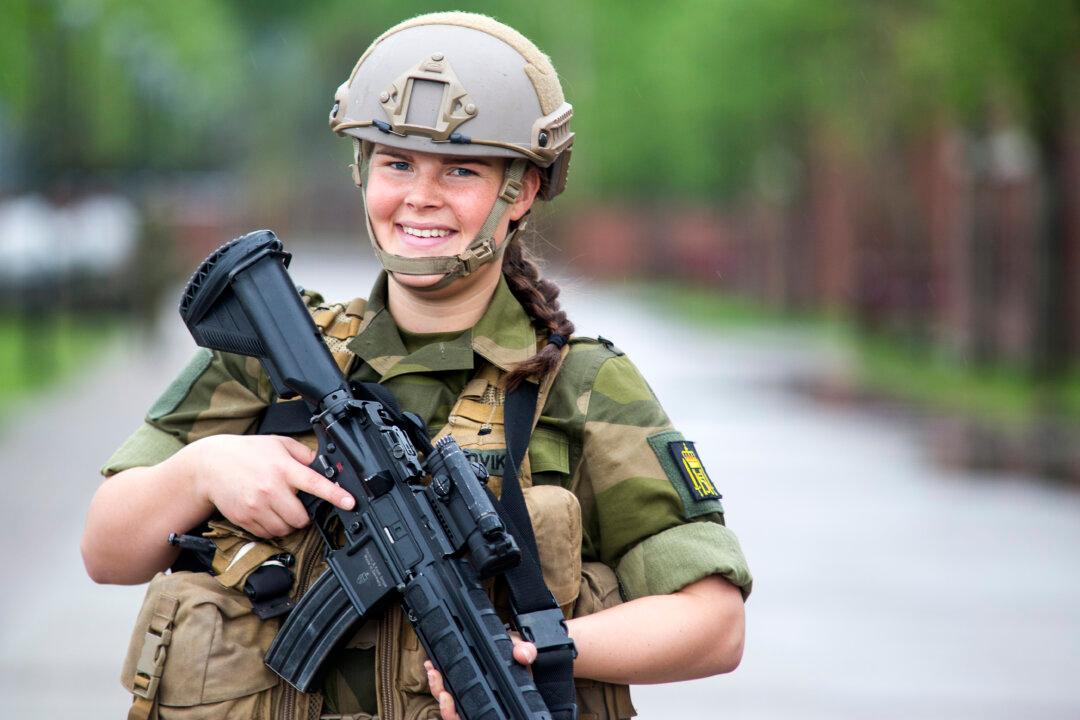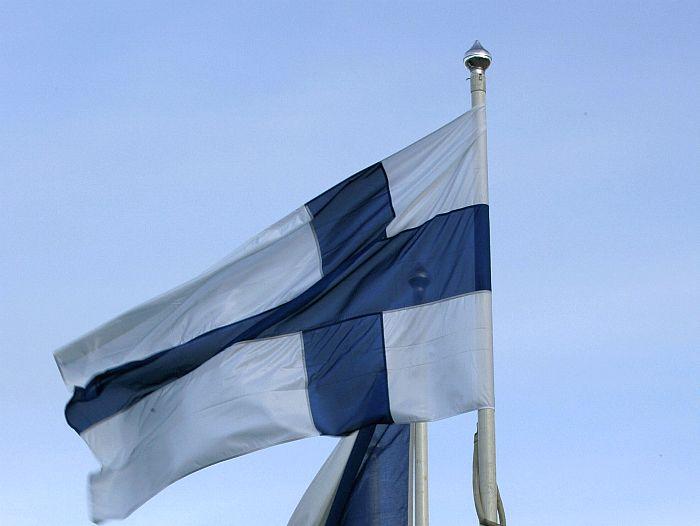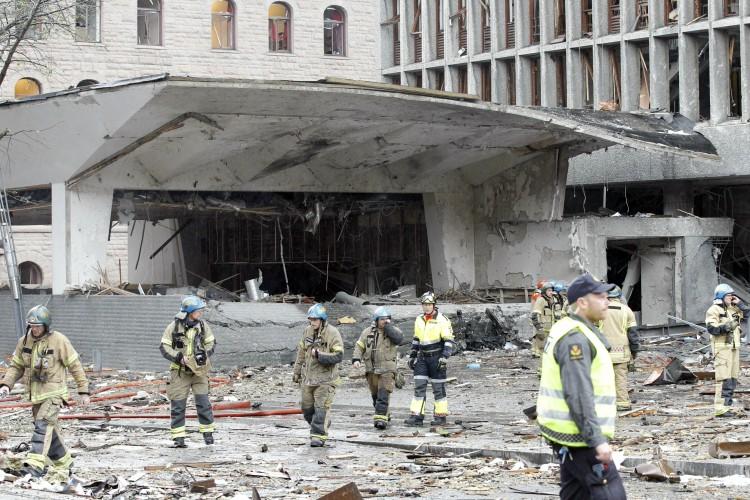GOTHENBURG, Sweden—Norway is considering extending its conscription to women as well as men.
This spring, political parties from both the left and right have agreed to a proposition for “gender neutral” conscription. This means that women and men will be drafted to military service on an equal basis.
The proposition is expected to easily be voted into law in June considering its support in Parliament, though there may be a delay of a couple of years before implementation.
This is an unusual move, that would put Norway in the company of only a handful of countries, such as Cuba, Israel, Malaysia, and North Korea. Neighboring Sweden, for instance, considered female conscription in 2002, but has now abandoned conscription altogether.
Currently, some 10 percent of the 10,000 young people who go through their first-time military training each year are female volunteers.
A Female Soldier’s Experience
Kjersti Sandvik, 20, always dreamed of military service. Inspired by her uncle, who is in the army, she decided to volunteer. She has been serving in the Norwegian Royal Guard for six months, which means that she is halfway through her service.
The Royal Guard is the largest battalion of the Norwegian army, and has about 10 percent female soldiers. Sandvik’s squad consists of 44 people, five of which are women.
“We have to work a little bit harder to be heard, because our voices aren’t as strong as the men’s,” Sandvik said. “But they’re happy to have us.”
Sandvik has been appointed squad leader, which brings some extra responsibilities. Her squad handles heavy guns, and women and men perform the same duties.
“We all do the same stuff. We are not as [physically] strong as the men, but we have to do pretty much the same things—the same exercises and drills, and carry as much weight,” she said.
Being in the field is tough, she said, with much work and little food. Sometimes they are put through a real ordeal, like the long race, the lueløp, which is the final test for becoming a Royal Guard.
The race takes about 14.5 hours and runs through the woods. When Sandvik got to the final leg of the race, her team had to help her make it across the finish line.
“We really pulled together as a team getting through that race, it was a great cooperative effort,” she said. “We made it through.”
She feels that she knows herself and her limits better now as a result of the service. She and the other soldiers learn how to respect others, since they have to be together constantly, and finish their tasks together.
Sandvik thinks that the Norwegian armed forces would be slightly different with a larger proportion of women, since they do not have the same physical capacity as the men.
Opposition From Women’s Rights Advocate
The idea of gender neutral conscription has its critics too. One of them is Torild Skard, chairwoman of the Norwegian Association of Women’s Rights. She is doubtful that it would bring increased gender equality. Already, women pull the heavier load when it comes to childbirth, nursing, unpaid care for children, the sick, and the elderly Skard said.
“Adding another burden, like conscription, to this situation, is completely unreasonable, and might instead increase the economic and social inequality between men and women,” she wrote in an official statement. “Instead of increased equality, the result is bigger differences.”
She argues that women may already volunteer for military service on the same terms as men. Conscription is a different matter, as it forces people to do it, whether they want to or not.
Stortinget is expected to decide the matter in mid-June. Norwegian Prime Minister Jens Stoltenberg has called gender neutral conscription “brave” and “historical.”




